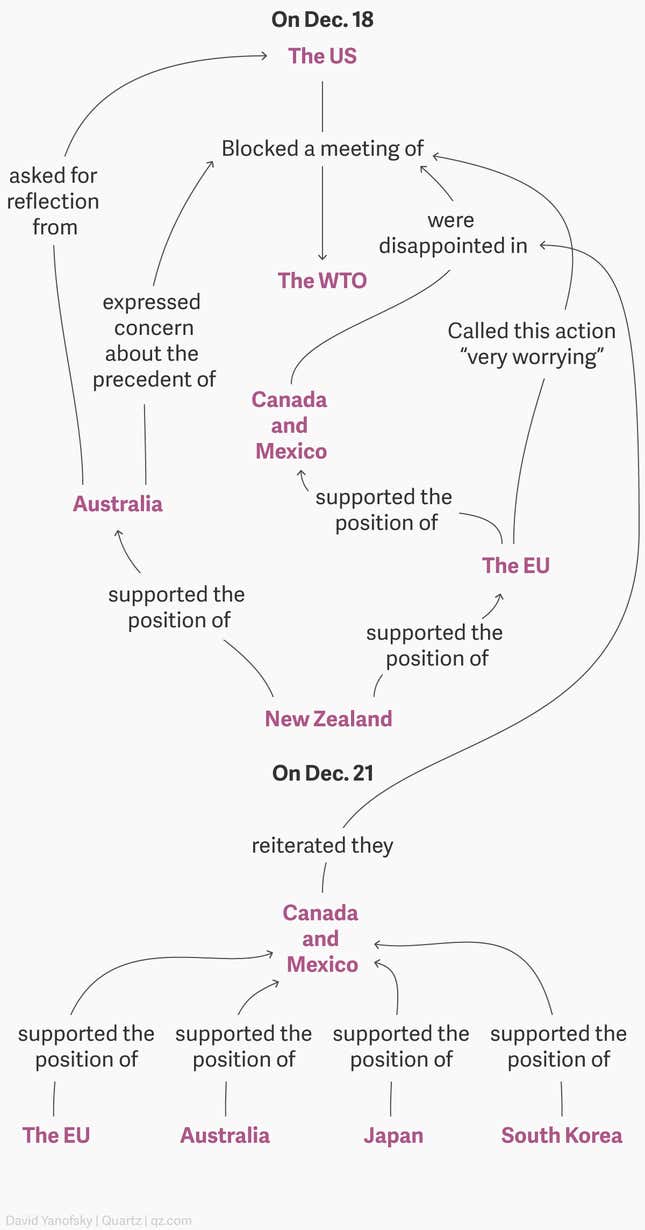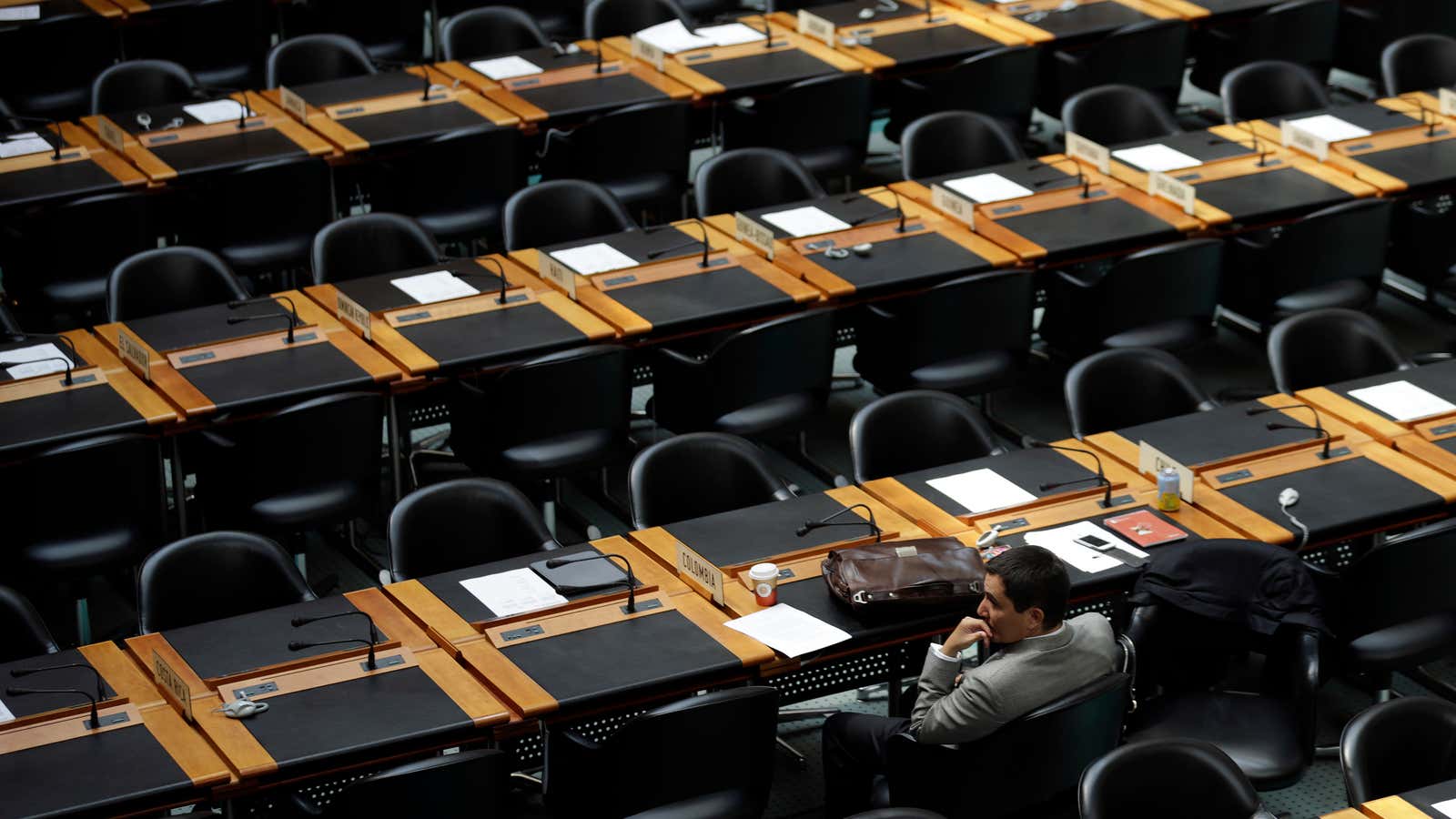This post has been updated

The World Trade Organization has already given Canada and Mexico the nod to levy $1 billion in retaliatory tariffs against the United States for requiring that all meat sold in the country be labeled by its country of origin. But it didn’t finish dotting the i’s and crossing the t’s on the permission slip.
That work had been scheduled to occur yesterday (Dec. 18) at a meeting of the WTO. Only the US used a procedural move to block it from happening, by arguing that the requisite body of the WTO should not be able to meet while the WTO’s ministerial conference is taking place in Nairobi.
The action unleashed a flurry of diplomatic responses, described thusly by someone privy to the reactions. This person requested anonymity to be able to freely share the stances, which are typically taken privately.
Canada and Mexico, which of course stand to directly benefit from the tariffs, are disappointed in the US’s actions and say the meeting-delay maneuver is an effort to meddle in the WTO’s finalization of the retaliatory tariffs.
The EU delegation supported the position of Canada and Mexico, and described the move by the US as “very worrying,” according to our source.
Australia expressed concern about creating a precedent for blocking WTO business procedurally and asked the US to reflect on its implications.
And New Zealand supported the position of both Australia and the EU.
The tactic gave the US just a few more days to come up with its next procedural move, try another diplomatic tact, or perhaps find a better PR moment. The issue is now scheduled to be taken up on Monday, Dec. 21.
Update (Dec. 21): The WTO met today and approved the retaliatory measures. Before doing so, there was more diplomatic posturing: Canada and Mexico reiterated their disappointment over the US blocking the previous meeting. That position was supported by the EU, Japan, Australia, and South Korea.
Got that? Perhaps this diagram will make it easier to understand.
